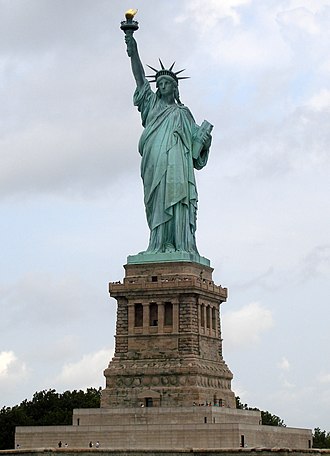Within the sustainable consumption community we have been talking for a long time about the need for system change. And there has been no shortage of ideas on that front: from reducing consumption by way of shorter working hours, to reducing competitive consumption by way of less inequality, to controlling advertising, to supporting stronger communities and local economies, to retrofitting suburbs, to replacing GDP as a measure of societal progress, and even to questioning capitalism.
But politically it is impossible to sell the idea of systemic change to citizens who believe in American exceptionalism, an ideology in which they have been inculcated from birth. American exceptionalism holds that the U.S. is the best country on earth, that we do everything better and have nothing to learn from other countries; and that individualistic US citizens know best how to spend their money for the benefit of their families and immediate communities, and that contributing taxes toward societal institutions and collective action is highly suspect. This ideology has become especially strong ever since President Reagan convinced Americans forty years ago that the government cannot solve our collective problems because “the government is the problem”.
In a recent article in the Atlantic entitled “The Coronavirus Called the America’s Bluff” a historian and Pulitzer laureate Anne Applebaum deconstructs this myth (https://www.theatlantic.com/ideas/archive/2020/03/coronavirus-showed-america-wasnt-task/608023/). Covid-19 virus – she writes – reveals the fundamental dysfunction of the US as a society. This dysfunction goes way beyond the current Trump administration, which visibly failed to respond in a timely manner (largely because the personality cult in the president’s inner circles and the fact that the President cares about the stock market, not about public health). “American bureaucracies, and the antiquated, hidebound, unloved federal government of which they are part, are no longer up to the job of coping with the kinds of challenges that face us in the 21st century.”
Global pandemics, cyberwarfare, and climate change are threats that require flexible and highly motivated and educated professional bureaucracies, a national health-care system that covers the entire population and is immune to political winds; and public schools that produce thoughtful and engaged citizenry. The country also needs institutional structures which protect citizens from chronic economic insecurity whereby even middle class families are one paycheck or one major illness away from homelessness. It shows the critical need for paid sick leave, unemployment benefits for hourly workers, and other social protections. It glaringly reveals the vulnerability of the economy that depends so heavily on household consumption, including the GHG-intensive air travel.
In relation to American exceptionalism, the coronavirus starkly shows that society-wide existential threats require a collective response, strong and trustworthy public institutions, and a strong tax base, including fair contributions from top earners and corporations. Individuals cannot develop their own private response to a pandemic, just as they cannot have their own private little levies against rising sea levels, or private little protections from the effects of unraveling economy.
There is a chance in this election year that the Covid-19 crisis will lead our citizenry to see the glaring dysfunction of the US institutions. When that happens, a decisive crack will be inflicted in the wall of denial built around the mirage of American exceptionalism.
In his “interstitial” theory of social change celebrated American sociologist Eric Olin Wright, who died in 2019, envisions new modes of social organization appearing in the fractures of the dominant system, eventually leading to radical social change (https://en.wikipedia.org/wiki/Erik_Olin_Wright). I hope that the Covid-19 pandemic will prove his theory right.
